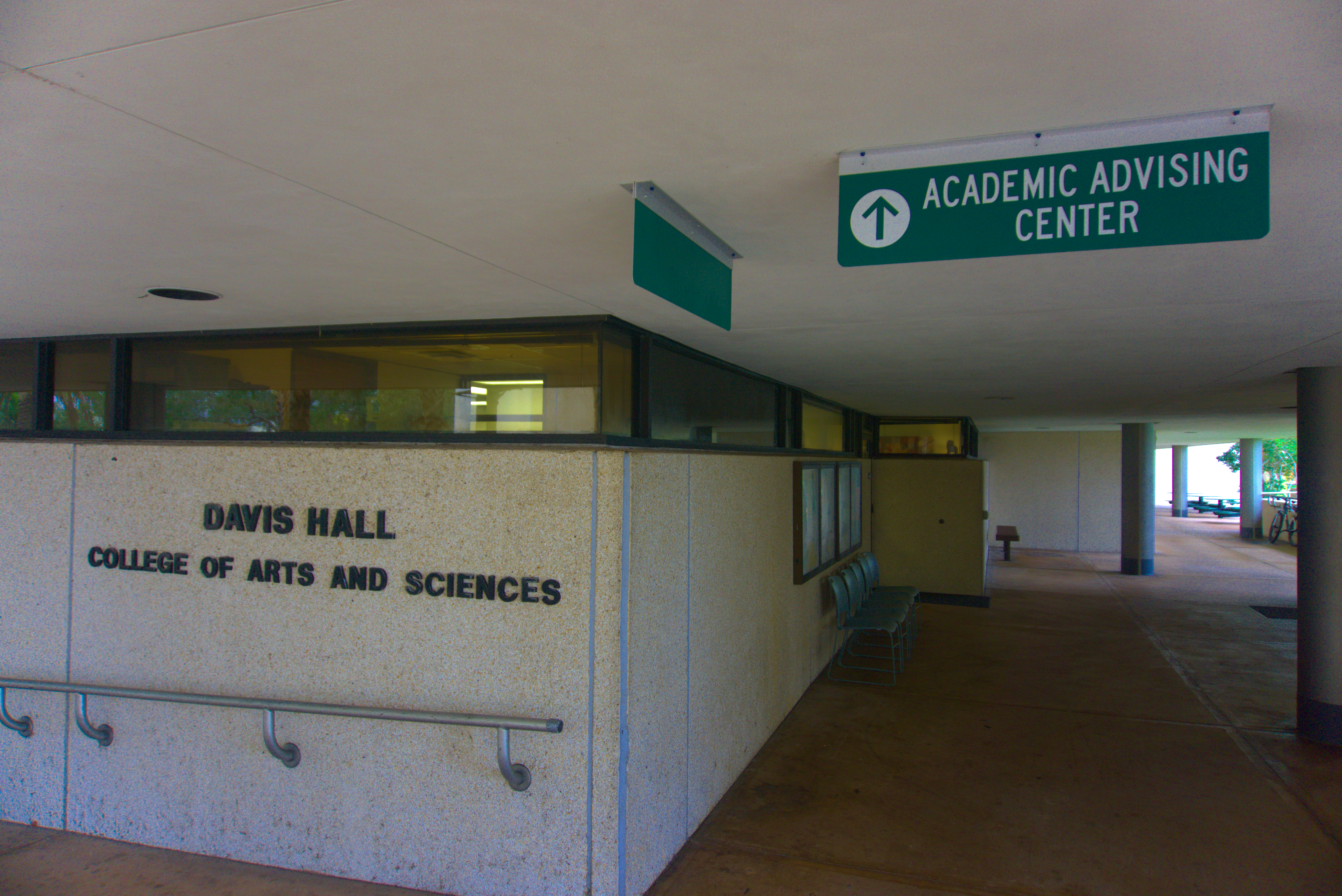Above photo: The advising offices can be found in the first floor of Davis Hall, room 134. Luke Cross | The Crow’s Nest
By Dylan Hart and Luke Cross
New professors, new assignments and new expectations—the first week of classes is always a stressful period.
The stress only increases as the first week ends and the add/drop date passes, locking students into the classes they signed up for and dooming them to what could be a long, arduous semester.
But fear not! There is hope that you will make it through. Plenty of resources are at your disposal – one being Academic Advising.
“Know there’s always help – whether it’s us here at Academic Advising, the Student Success Center, your peer coach or your professors themselves,” said Sheila Goethe, an academic adviser for the College of Arts & Sciences.
Academic Advising is available by appointment Mondays through Fridays, while the Student Success Center opens at 10 a.m. on weekdays with no appointment needed, and closes 6 p.m. Monday and Thursday, 8 p.m. Tuesday and Wednesday and 2 p.m. Friday.
An important piece of advice that all advisers can agree on is sorting out academic issues early in the semester before assignments start to pile up.
Roy Callihan, an adviser for the College of Arts & Sciences, stresses the importance of getting in to see an adviser as early as possible if any issues arise.
Amanda Timmers, an adviser for Graphic Design students in the College of Arts & Sciences, focuses on the importance of organization in a student’s success.
“The biggest thing is to make sure that you have a planner, you’re organized and you have an objective in the course,” she said.
Communication is also a large part of surviving the semester, whether it is with other students, advisers, professors or even external friends and family.
Timmers proposes finding a friend in the class, “so you can bounce ideas off of someone,” but clarifies that when it’s time to study, “you’re not just in the library chatting with your buddies – have it be a productive study time.”
“Communicate with your professors so you know what they expect from you. That’s one of the most important things you can do,” Callihan said.
Without this understanding, the work of the semester can seem overwhelming and sometimes force students to give up on the class entirely.
While many students have no problem engaging peers to help move forward academically, those who struggle with contacting professors are not alone.
“The hardest thing to do is to walk in and say, ‘I need help,’” said Timmers. “But as educators, we welcome that. Instructors want you to learn.” Timmers clarified that swallowing your pride and moving forward is crucial to success.
With all the stress of the semester, it can sometimes seem impossible to cool off. Overworking may seem inevitable, but Goethe says “make sure you get rest— I have a poster in my office with 50 ways to take a break.”
For those who don’t take time for themselves in between the stress to reflect on the chaos of college, lack of focus can become one of the most painful experiences of the whole ordeal.
Reflection on the hard work of the semester is especially crucial, not only for preventing burnout but for learning as well.
“If you reflect on what kind of student you were when you were a freshman and how you are now, you probably aren’t the same student,” Timmers said. “Most people evolve throughout their time as a student. Figure out how to do it and do it well.”
Goethe adds, “One of the most important things is letting yourself enjoy it.”



